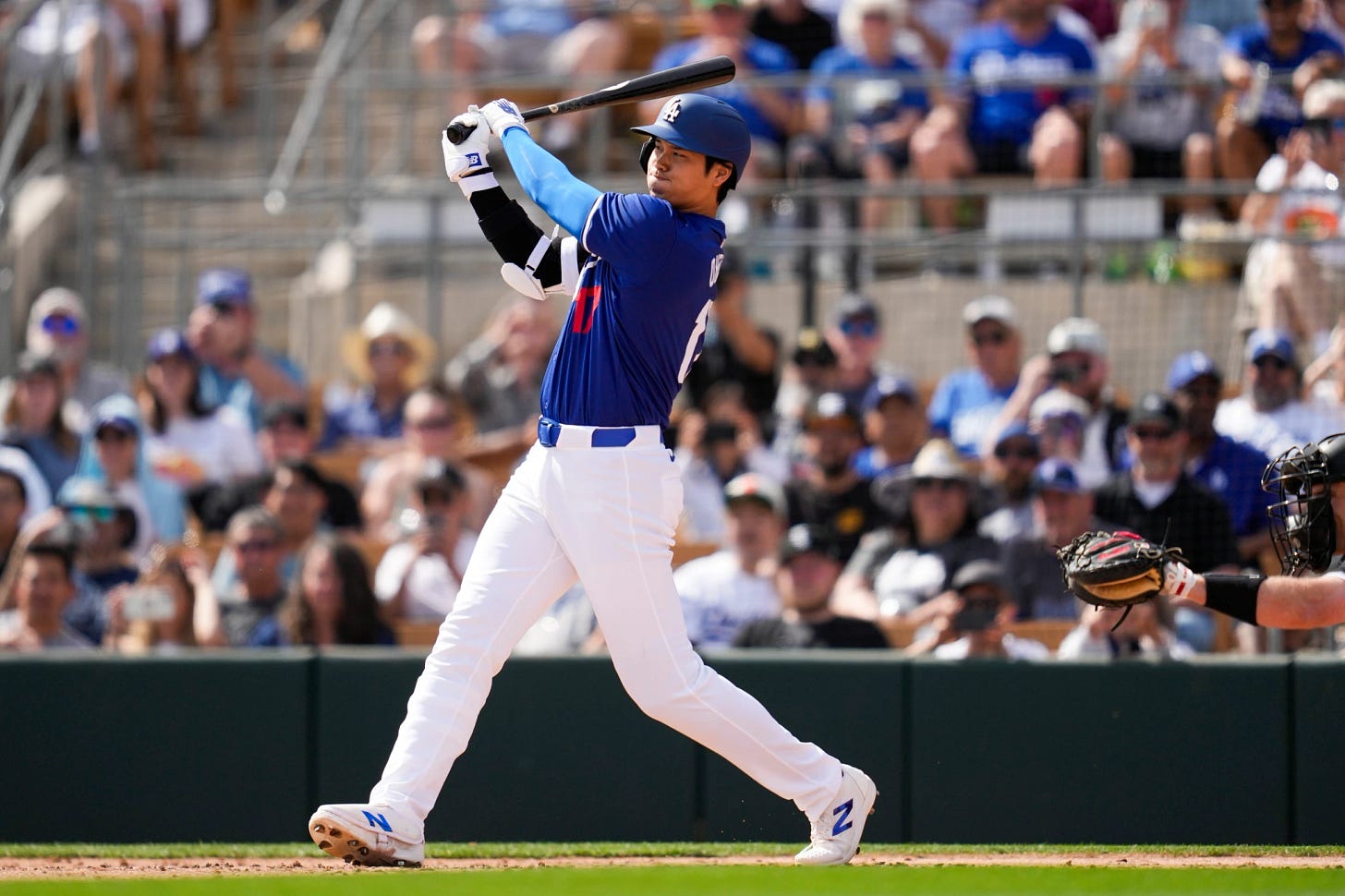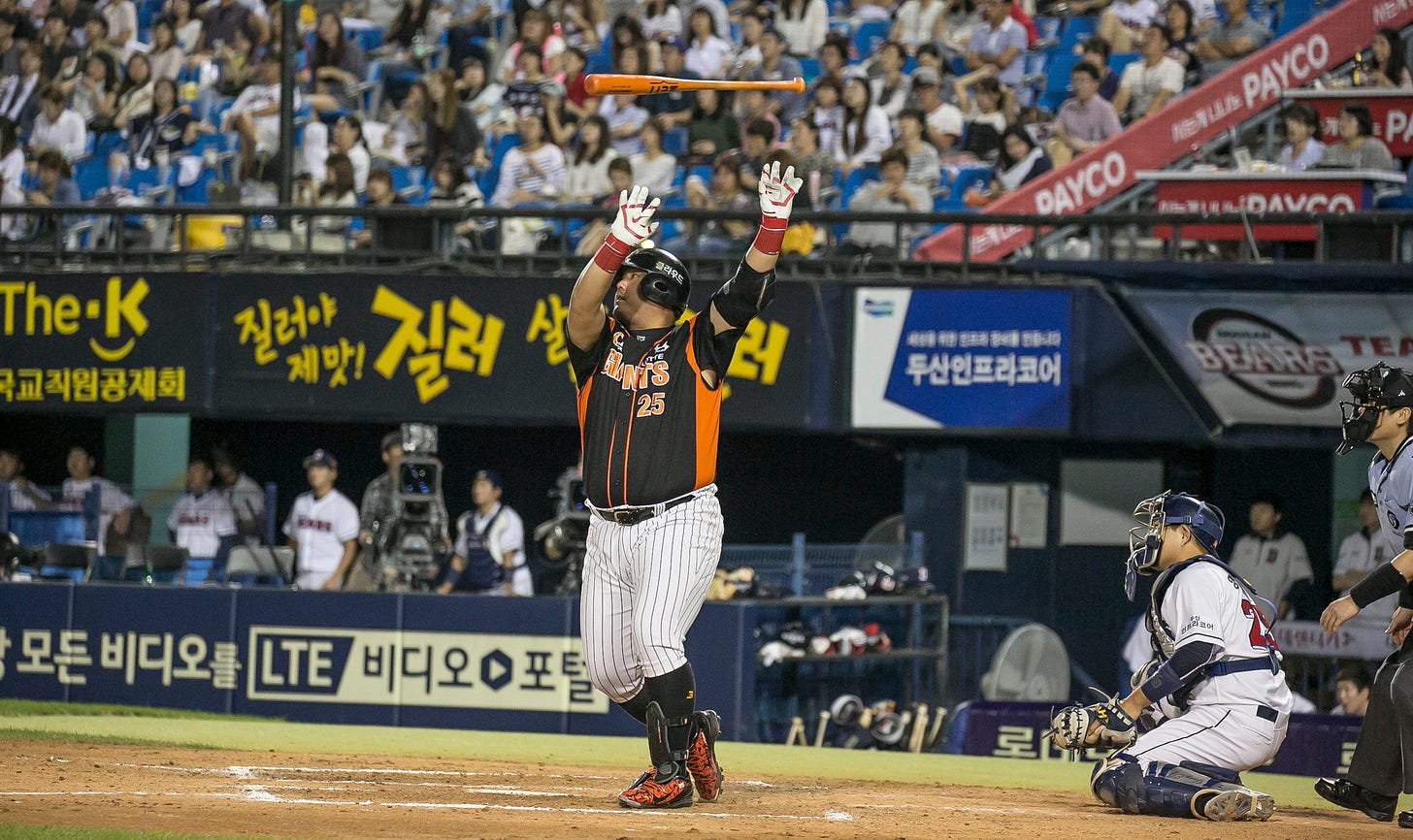#19: Baseball in East Asia
Baseball may be the American pastime, but it has decades of history on the other side of the Pacific too. This week we’re looking at baseball in two nations of East Asia, both of which have won international titles in the sport: Japan & South Korea.
While the Japanese & South Koreans have distinguished themselves in the sport on both the local and international stages, they owe the Americans for introducing the sport to their shores. The sport was introduced to Japan in 1859 after trading ports were opened after a period of Japanese isolation; to begin with it was played alongside cricket as American and English traders mixed. The first organised games were arranged in 1872 by an American teacher at a high school, and since then, baseball has been a major source of sporting competition for Japanese students. In the 21st century, the high school competition for elite teams is broadcast nation-wide. The Japanese professional league is called the Nippon Professional Baseball League, and it comprises of 12 teams (the Hanshin Tigers are the reigning champions), and the league is the largest outside of the USA. The Japanese national team has won the World Baseball Classic, a kind of World Cup, three times - more than any other team.
The most notable Japanese player of the game is Shohei Ohtani, who since the 2024 season has played for the LA Dodgers. The contract he signed with the Dodgers is the biggest sports contract ever, stretching to 10 years and measuring USD$700,000,000. The reason for such a staggering price tag is his prowess as both a pitcher and a designated hitter - a rare instance of being a “two-way player”. He is the first player to hit ten home runs, steal twenty bases, pitch at least ten games, and strike out at least 100 batters in a single season. Every analyst willing to give their opinion believe he will be a future inductee to the Baseball Hall of Fame on the first ballot. He’s very exciting to watch!
The game hasn’t been in South Korea for quite as long, being introduced by American missionaries in 1905. After the Korean Peninsula was split into two nations in 1945, the game has exploded in popularity in South Korea. Professional play began in the 1980s, and most of the ten teams making up the Korean Baseball Organisation League (KBO League) being affiliated with large corporations. The Kia Tigers are the most successful team, winning 11 of the 42 championships completed. The Korean league is known for being boisterous as fans are more active than crowds in Japan or the USA. Korean players also like to flip their bats after striking a home run, to the cheers (or jeers) of the stadium’s fans. The South Korean national team won the Gold Medal at the 2008 Olympics, beating Cuba in the final.
Despite these sports being introduced earlier than the end of the Second World War, in these two examples we can see the effects of American culture in faraway and very different lands. You’d earn odd looks for suggesting in 1945 that Japan would take so well to an American sport, and yet now the most exciting player in the MLB needs an English interpreter to properly address his adoring fans! Funny how things turn out.
P.S. Go Phillies!





